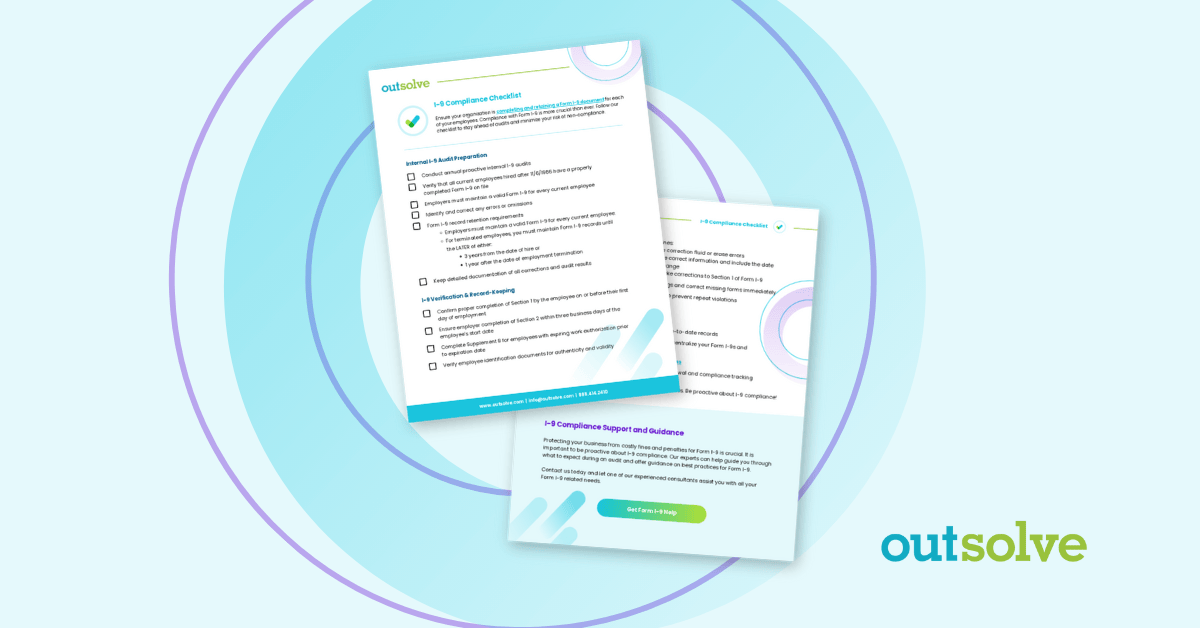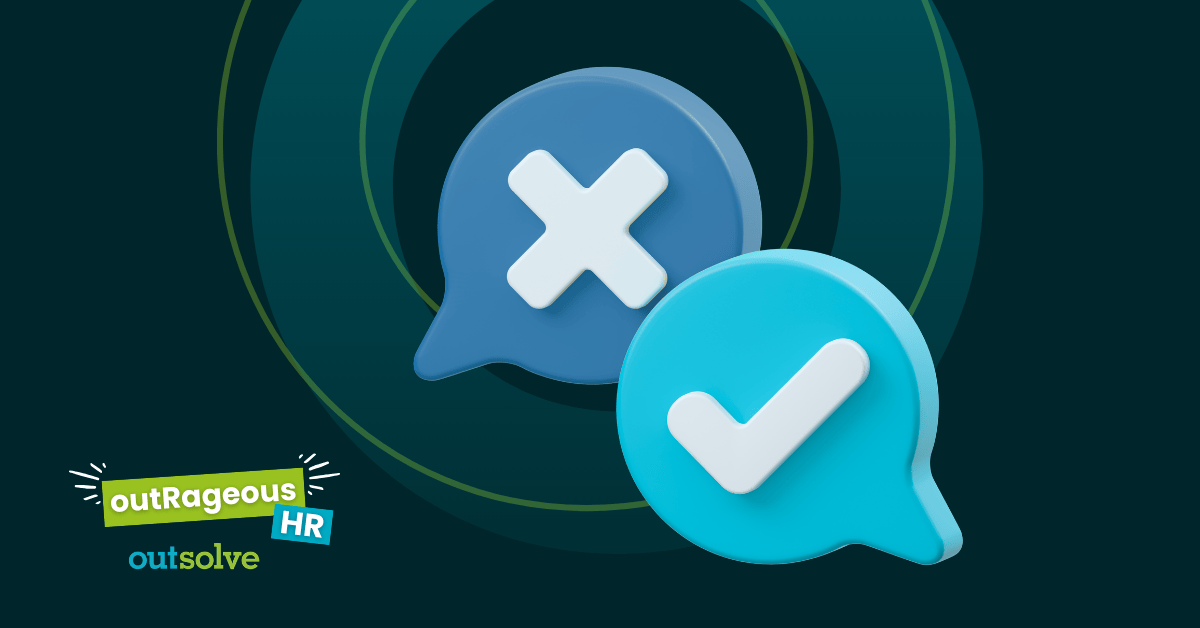5 min read
Acquiring a Federal Contractor? Refresh Your Due Diligence Checklist
 Alissa Horvitz
:
Sep 4, 2025 9:11:49 AM
Alissa Horvitz
:
Sep 4, 2025 9:11:49 AM

Is your organization contemplating an acquisition or merger with a federal government contractor? If so, the stakes have gotten even higher when it comes to due diligence in evaluating the company you are looking to purchase.
The Trump Administration has issued a number of executive orders aimed at removing all DEI from organizations and both the Equal Employment Opportunity Commission (EEOC) and the Department of Justice (DOJ) are poised to accelerate their investigations soon. This makes it crucial for you to evaluate any unlawful DEI that could have existed or still exists in any potential companies you are considering purchasing.
The EEOC is expected to have a full quorum imminently, reinstating their decision and policy making authority, and the Department of Justice created a new Civil Fraud Initiative Unit to pursue employers under the False Claims Act.
Because of these developments, and the potential risk that Artificial Intelligence (AI) use may be having on the workforce, Human Resources departments may want to refresh and update their due diligence checklists, and Merger & Acquisition (M&A) legal practices may want to conduct a deeper risk assessment of a Seller’s human resources compliance than previously contemplated. You want to ensure you aren’t taking on any risk associated with a company’s unlawful DEI.
Your due diligence assessment should be evaluated back to 2020. The death of George Floyd in 2020 prompted many organizations to develop new diversity, equity, and inclusion (DEI) initiatives, and the federal enforcement agencies are very aware of that.
Their investigatory and demand letters to date have not been limited to practices that were in place from January 2025 to the present. The enforcement agencies are going back to 2020, in many instances. Buyers whose due diligence does not go back that far could be acquiring prolonged litigation, a False Claims Act lawsuit, and harm to the purchaser’s brand and reputation without a more thorough research process.
Things to Consider During Due Diligence
There have been many recent enforcement agency developments and buyers may want to add the following questions to their due diligence checklists to stay on track with recent requirements.
1. A Full EEOC Is Coming—And So Is Enforcement
The Equal Employment Opportunity Commission (EEOC) is poised to have a full quorum soon. The Senate Health, Education, Labor and Pensions (HELP) Subcommittee advanced Brittany Panuccio’s nomination to the full Senate. Once the Senate confirms her (and there’s no reason to believe she won’t get confirmed), the EEOC is going to follow through on its announced enforcement agenda, which includes pursuing employers that have illegal DEI. The letters the EEOC sent to 20 law firms earlier this year highlight a hidden risk for buyers because the agency did not limit its request to data and documents created after EO 14173 took effect on January 21, 2025. The letters to the law firms sought data and documents going back to 2020 in many request paragraphs, and in some requests all the way back to 2015.
Many organizations adopted new diversity policies and practices after the death of George Floyd, and enforcement agencies believe some organizations swung that pendulum very far to the left – potentially so far as to have set aside internships and other opportunities for women and people of color, to the disadvantage of men and non-minorities, and have permitted decisions to be made based on race and sex (for example, diverse interview slates).
If your organization is contemplating buying a federal contractor or federal grant recipient, as the purchaser, you need to know whether the seller’s organization had any of these practices in place and whether hiring rates, promotion rates, and termination rates show statistically significant impact adverse to any race and sex going back to 2020. Examples of due diligence questions might include:
- Have you reviewed the seller’s employee resource groups (ERGs)?
- What representations and information does the seller make regarding its diversity and inclusion plans and ERG initiatives in its policies, on its external-facing website, including recruiting platforms, and internal web pages?
- Is the seller identified as a partner or supporting organization of any external diversity organization/program, or any organization that limits or restricts participation to a particular race or sex?
- Are there diversity organizations listing your organization as sponsors or participants?
- Did the seller’s organization prepare Affirmative Action Plans (AAPs) for Women and Minorities for each establishment or functional unit from 2021 to 2024? Would any of the outreach conducted under the AAPs be considered unlawful DEI?
- Did the seller’s organization prepare Affirmative Action Plans for Women and Minorities in 2025? Were the analyses done under attorney-client privilege?
- Did any impact ratio analyses of hires, promotions, or terminations identify statistically significant differences by race or sex? What did the seller’s organization do to investigate or follow-through on the areas that were identified?
- Did the seller conduct any pay equity analyses by race and sex from 2021 to the present? Were they conducted under attorney-client privilege? If not, what did the analysis reveal?
2. DEI Under the Microscope: What Buyers Must Evaluate
The Department of Justice is going to use its Civil Rights Fraud Initiative unit aggressively to pursue organizations falsely certifying that they comply with all federal nondiscrimination laws as well as any allegations of illegal DEI, and it is soliciting complainants to launch such investigations. Buyers need to know what the seller’s organization has done to ensure compliance with federal nondiscrimination laws and remove any illegal DEI. Examples of questions might include:
- Has the organization been asked to certify compliance with EO 14173? By what agency? What executive signed the certification?
- Did the organization engage in any preferential hiring or promotion practices (prioritizing candidates from underrepresented groups for hiring) or bypass other qualified candidates in making hiring or promotion decisions, since 2020?
- Did the organization use diverse interview slates? If yes, when did the practice end?
- Did the organization set aside internships, fellowships, or leadership conferences for women and minorities? If yes, when did that end?
- Does the organization provide financial support to organizations that, in turn, limit eligibility or participation based on race or sex? If so, what organizations?
- Does the organization have supply chain set-asides for businesses that are women-owned or minority-owned?
3. AI Bias and Liability: A Growing Threat
Artificial Intelligence: States are beginning to pass laws regulating the use of artificial intelligence in the employment context. There also are several discrimination charges and lawsuits working their way through state enforcement agencies and courts involving the impact that artificial intelligence in the employer’s hiring process has had on different protected groups.
For example, Workday is defending a collective action involving potentially millions of rejected applicants who are 40 years or older, and who alleged that they applied for job opportunities but were rejected automatically by the artificial intelligence that Workday was using to screen candidates. Other employers are using interview technology that may not be sufficiently adaptable to individuals who are deaf, hard of hearing, who speak with a foreign accent, or who have a cognitive disability. Examples of due diligence questions might include:
- Does the seller use any artificial intelligence in its recruiting or hiring processes?
- Does the seller have an established process for vetting and determining whether to adopt AI tools? What was the seller’s process for doing so?
- Did the seller’s organization test the AI tools that it adopted to ensure that they reliably and fairly measured relevant hiring criteria?
- Can the seller catalog the ways in which it is using artificial intelligence in the hiring process?
- Does the seller have a reasonable accommodation policy in place for applicants who request accommodation for the use of artificial intelligence in the hiring process?
- Has the seller ensured that the use of the technology does not have an adverse impact on any race or sex?
- Can the seller represent and warranty that the technology is job-related and consistent with business necessity, or been validated by an industrial organizational psychologist in accordance with SIOP principles or the Uniform Guidelines on Employee Selection Procedures?
Thorough HR Diligence Is No Longer Optional in M&A Deals
This is by no means an exhaustive list, but the stakes for buyers have gotten riskier under the Trump Administration’s enforcement initiatives. The U.S. Court of Appeals for the Fourth Circuit is going to hear oral argument in September regarding the Maryland District Court’s order enjoining the certification requirement, and the FAR Council’s Interim Final Rule implementing the certification obligation under EO 14173 is going to be published.
This is a Buyer’s beware situation if you are not vetting these issues as part of your M&A due diligence. Click below to learn more or ask OutSolve consultants for guidance.
HR Compliance Checklist
OutSolve has also created an HR Compliance Checklist that HR teams can use to stay on top of deadlines and key compliance requirements. Download your free copy today.
Alissa Horvitz is a member attorney at Roffman Horvitz, PLC, a firm with decades of experience assisting government contractors and other employers with human resources compliance and employment data analytics. Horvitz received her J.D. from The George Washington University Law School.
Weekly OutLook
Featured Posts

5 Key Compliance Items HR Can’t Afford to Ignore

HR Compliance Checklist: What Every HR Pro Needs to Know
Related Posts

I-9 Audit Checklist: Don’t Risk an Audit
Employers continue to be held to a higher standard when it comes to Form I-9 compliance, especially due to increased immigration enforcement and...

outRageous HR: HR Plans vs. Reality: Why Execution Falls Apart (and How to Fix It)
We all know the feeling. In Q4, strategic planning is in full swing, and the roadmap for the upcoming year looks pristine. You have a solid...
.png)
Beat the Rush: Outsource Federal Reporting Requirements in Q1
The beginning of the year usually feels like a fresh start that brings new business initiatives, goals, and strategies. The work you do between...


